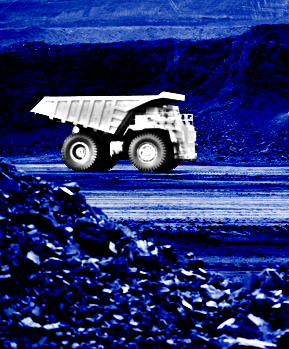Miners' mental marks as deep as any drill
 Several recent events have come together as a strong reminder of the non-physical health risks of the mining industry.
Several recent events have come together as a strong reminder of the non-physical health risks of the mining industry.
Mental health and safety of mining workers was the focus of the three-day conference "Zero Harm: Health and Safety" at the Newcastle Entertainment Centre last week.
The exhibition was organised by Mining and Engineering New South Wales Exhibition to coincide with Australian Mental Health Week, to give attendees insights and ideas for looking after themselves onsite, in camp and at home.
Experts spoke on the Newcastle Institute for Energy and Resources said she will discuss her recent studies into improving the safety of surface mining.
But mental health and physical health are not separate things, as is shown by the mental damage for workers when a colleague is killed in a rock fall, or the psychological toll that can be taken from female workers in a demanding, macho and physical environment.
These aspects and many more have lead to tragic cases, such as the nine fly-in fly-out workers who committed suicide in the WA mining industry over the past 12 months.
A parliamentary inquiry into mental health concerns of fly-in fly-out (FIFO) workers has been launched, to look at ways that resources companies can prevent suicides.
Speaking to the ABC on the weekend, former FIFO worker and now general manager of the Inpex gas project in NT Sean Kildare described some of the less-obvious but equally deadly dangers of the job.
“There was absolutely nothing for horizon to horizon but sand dunes,” Mr Kildare said of his time working on an eastern Pilbara mining site.
“That does place some anxiety on you from time to time, especially when things might not be travelling so well at home and you can't be there with the family to deal with that.”
Mr Kildare said the “blokey macho scene” at many mine camps meant it was difficult to speak up about even physical problems like poor diets or high blood pressure.
“Mental health issues take that problem a step further because, whether it's a ‘macho man’ scene or for females, mental health issues attract a perception of stigma to them,” he said.
The gas exploration manager said the increasing amounts of women in the FIFO workforce “tend to have a calming effect on what is historically a young man's rough-neck, push-it-to-the limit kind of culture”.
“I think the cultural transition of the industry to have some balance [towards] what you find in the city home environment still has to develop.”
If you or anyone you know has experienced ongoing periods of sadness, anxiety, or otherwise needs help, please contact:
- Lifeline on 13 11 14
- Suicide Call Back Service on 1300 659 467
- beyondblue on 1300 224 636








 Print
Print